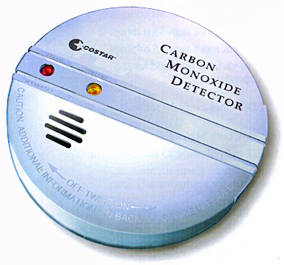
As a result of this tragedy, rented RVs are now required by Tennessee law to have a functioning carbon monoxide detector before being leased for use. The bill also holds RV rental companies responsible if they fail to document and test the CO detectors in their leased vehicles. It is important to note that this law only applies to rentals. It is still imperative that personal RV owners stay diligent in testing and changing the batteries of the carbon monoxide detectors in their own campers.
Carbon monoxide (CO), often called “the silent killer,” is an invisible, odorless gas created when fuels (such as kerosene, gasoline, wood, coal, natural gas, propane, oil, and methane) burn incompletely. Carbon monoxide can result from camping equipment, such as barbecue grills, portable generators or other fuel-powered devices.
“Carbon monoxide levels from barbecue grills or portable generators can increase quickly in enclosed spaces,” said State Fire Marshal Julie Mix McPeak. “Campers should keep and use these items in well-ventilated areas to avoid fumes leaking into the openings or vents of RVs and tents.”
Symptoms of carbon monoxide poisoning may include headache, nausea and drowsiness. Extremely high levels of poisoning can be fatal, causing death within minutes. Anyone who suspects they are suffering from carbon monoxide poisoning should immediately move to a fresh air location and call 9-1-1 or the fire department.
The State Fire Marshal’s Office offers tips to be safe while camping this summer:
- Only use barbecue grills outside, away from all doors, windows, vents and other shelter openings. Lit or smoldering barbecue grills should never be taken inside a tent, or RV.
- Never use a fuel-powered lantern or portable camping stove inside a tent or RV.
- Use portable generators outdoors in well-ventilated areas away from all doors, windows, vents and other openings to prevent exhaust fumes from entering RV.
- Install and maintain CO alarms inside, campers and RVs to provide early warning of carbon monoxide.